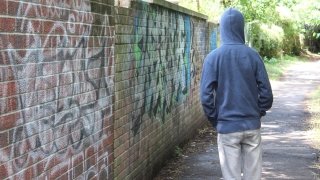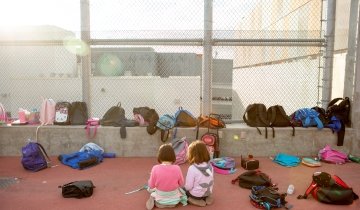Gangs exist in 57 of 58 California counties, and an estimated 50,000 school-age California youth are gang-involved, according to a 2014 study. USC Rossier Assistant Professor of Education Adrian H. Huerta, a national expert on college-access pathways for gang-associated youth, has found that areas with an active and heavy gang presence leave an indelible imprint on their community.
Long Beach City College (LBCC) and the USC Rossier School of Education’s Pullias Center for Higher Education hope to change that with a recently awarded grant from the U.S. Department of Education (DOE). The two institutions have collaborated to create the LBCC Phoenix Scholars, with a mission to promote and support higher education efforts for gang-associated youth in the greater Long Beach area. The nearly $1 million Fund for the Improvement of Postsecondary Education from the DOE will support these efforts for the next three years.
“Hypothetically, during the years of the grant, we could potentially support hundreds of people through the LBCC Phoenix Scholars program,” said Huerta. “If we are able to help 250 people graduate from high school or obtain a GED, certificate or associate’s degree, we could change a generation of people and support them towards an upward trajectory.” Looking ahead, Huerta said this could reduce expenses for social services and criminal justice efforts, such as gang prevention, gang suppression or welfare dependency, and create “a global shift in perspective in supporting gang-associated youth and young adults.”
With Huerta as a co-principal investigator who is also affiliated with the USC Pullias Center, the program will include a series of support systems within LBCC and the surrounding community that will promote successful post-gang life for youth and adults ages 16 to 24.
“This is a holistic, asset-based approach to support gang-involved youth,” said Huerta. “The LBCC Phoenix Scholars aims to contribute to dismantling the school-to-prison nexus, provide a pathway for jobs and a college education, and support families of the youth impacted by gangs.”
Huerta is also mindful that students are taking a calculated risk themselves by participating in this program. “This would be a massive identity shift for students who participate—to see themselves as a college student,” Huerta said. The LBCC Phoenix Scholars will involve trust and confidence building, in addition to constant reminders that students have agency over, are entitled to and deserve an education.
Huerta’s message to the incoming scholars is this: “Give yourself grace for all the possible mistakes that you made as a young person. We are also there to give you grace and space to make mistakes, and also support you to graduate from either high school or college.”





